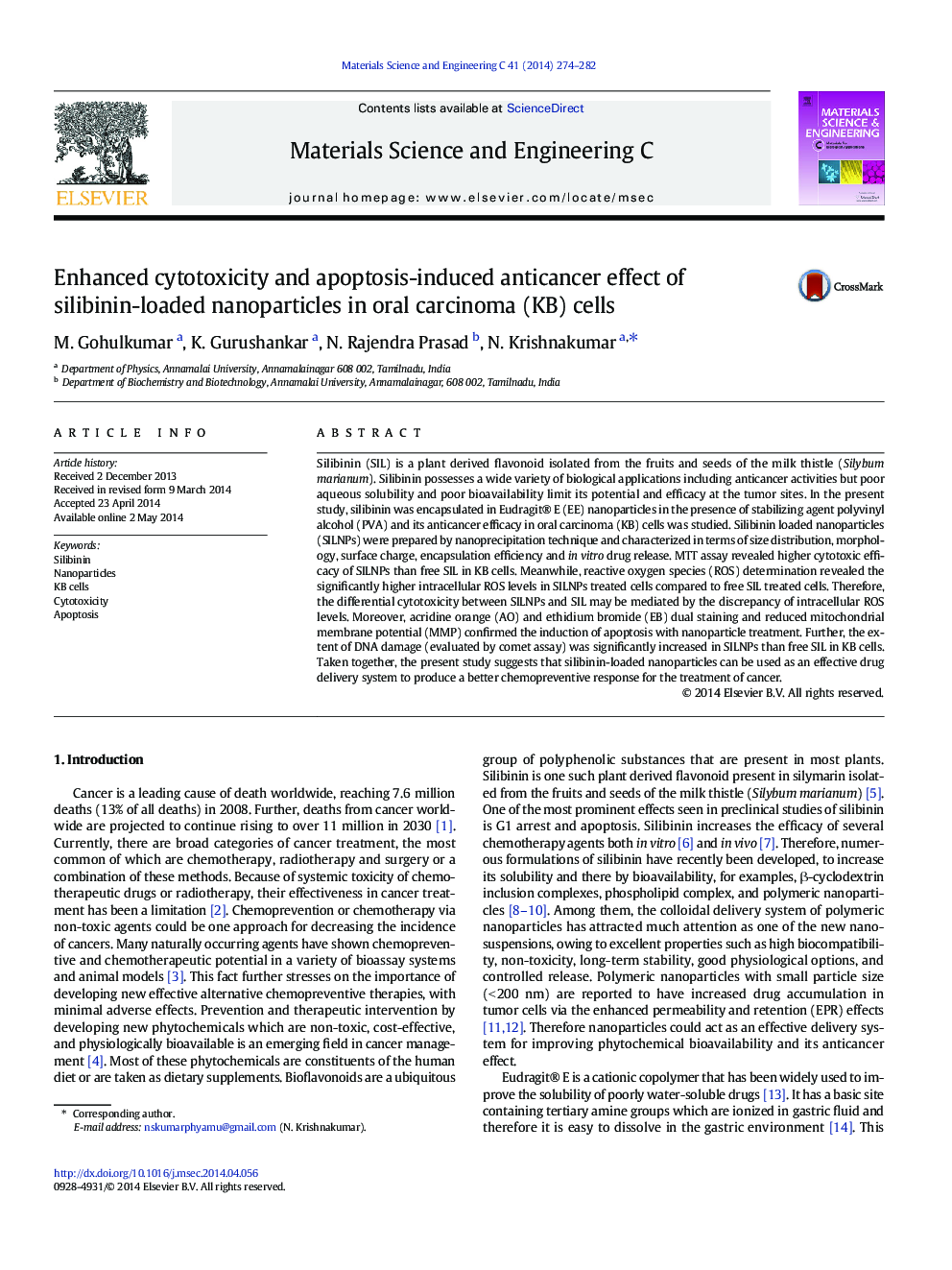| کد مقاله | کد نشریه | سال انتشار | مقاله انگلیسی | نسخه تمام متن |
|---|---|---|---|---|
| 1428737 | 1509180 | 2014 | 9 صفحه PDF | دانلود رایگان |

• SILNPs were synthesized and tested its anticancer efficiency in KB cells.
• Particle size of SILNPs was found to be in the range from 60 nm to 120 nm.
• Higher cytotoxicity efficacy of SILNPs than free SIL
• Increased ROS and reduced MMP confirmed the induction of apoptosis with SILNPs.
• SILNPs could be a potentially useful drug delivery system for cancer therapy.
Silibinin (SIL) is a plant derived flavonoid isolated from the fruits and seeds of the milk thistle (Silybum marianum). Silibinin possesses a wide variety of biological applications including anticancer activities but poor aqueous solubility and poor bioavailability limit its potential and efficacy at the tumor sites. In the present study, silibinin was encapsulated in Eudragit® E (EE) nanoparticles in the presence of stabilizing agent polyvinyl alcohol (PVA) and its anticancer efficacy in oral carcinoma (KB) cells was studied. Silibinin loaded nanoparticles (SILNPs) were prepared by nanoprecipitation technique and characterized in terms of size distribution, morphology, surface charge, encapsulation efficiency and in vitro drug release. MTT assay revealed higher cytotoxic efficacy of SILNPs than free SIL in KB cells. Meanwhile, reactive oxygen species (ROS) determination revealed the significantly higher intracellular ROS levels in SILNPs treated cells compared to free SIL treated cells. Therefore, the differential cytotoxicity between SILNPs and SIL may be mediated by the discrepancy of intracellular ROS levels. Moreover, acridine orange (AO) and ethidium bromide (EB) dual staining and reduced mitochondrial membrane potential (MMP) confirmed the induction of apoptosis with nanoparticle treatment. Further, the extent of DNA damage (evaluated by comet assay) was significantly increased in SILNPs than free SIL in KB cells. Taken together, the present study suggests that silibinin-loaded nanoparticles can be used as an effective drug delivery system to produce a better chemopreventive response for the treatment of cancer.
Figure optionsDownload as PowerPoint slide
Journal: Materials Science and Engineering: C - Volume 41, 1 August 2014, Pages 274–282